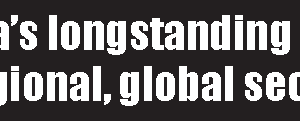According to Hate Speech and Disinformation Prevention and Suppression Proclamation, Hate speech means speech that promotes hatred, discrimination or attack against a person or an identifiable group based on ethnicity, religion, race, gender or disability. More to the point, disinformation means false speech, is disseminated by a person who knew or should reasonably have known the falsity of the information and is highly likely to cause a public disturbance, riot, violence or conflict.
Since mid-2018, Ethiopia has experienced serious communal violence that may have been provoked or exacerbated by online speech that fomented ethnic tension and violence, according to the report of Human Rights Watch.
The House of Peoples’ Representatives approved yesterday Hate Speech and Disinformation Prevention and Suppression Proclamation with a view to preventing and suppressing dissemination of hate speech and disinformation.
The Parliament reviewed the draft proclamation last November and directed it to the House’s Legal, Justice and Democracy Affairs Standing Committee for a detailed review. After that, two public discussions were held with pertinent bodies targeting at creating more clarity on the draft proclamation.
During the second public discussion on the draft proclamation, Representative of the Chairperson of the Standing Committee Abebe Gedebo said that the proclamation promotes national unity, respect and tolerance in the midst of the people of Ethiopia.
FDRE’s Deputy Attorney General, Dr. Gedion Timotios stated on the discussion that various discussions were held with the House and other concerning bodies and this being the case ten issues were improved based on inputs from the discussion. Be that as it may, participants of the discussion came up with quite a lot of questions.
Regarding the questions, Dr. Gedion said, “The draft proclamation does not go against the right to speak. The main reason for issuing the proclamation is to take account of ideas that were not previously incorporated.
“Earlier than transmitting certain information, the media should be able to place emphasis on editing. While on the subject, Abebe stated that at the end of the public discussion important ideas were raised to further develop the proclamation.”
Approached by The Ethipian Herald, Yirgalem Kassahun Media and Communication PhD candidate said, “At this point, fake news and hate speechs are turning out to be serious and growing problem all over the country seeing that they have been contirbtuing their share for the eslcaltion ethinc tesnison and conflcit on the national scale.
“Above and beyond, creating a legal framework to thwart the aforementioned problem is very vital. But the proclamation may intrude upon the constitutional right of citizens and freedom of speech,” he added.
“The proclamation may lead the media to censor themselves.”
Ruhama Tafesse is a lawyer. Reacting to the proclamation on prevention of hate speech and disinformation, she told The Ethiopian Herald that creating a legal framework is critical in addressing the spread of hate speeches and fake information across the country. But I would say, this will not be sufficient to get to the bottom of the problem.
“To bring about attitudinal change, the general public should be showered with the dos and don’ts of the issues,”
Following the dissemination of false information, quite a lot of people have encountered life-threatening attempts, property damage, defamation, and other related issues, she said, adding that a legal framework is essential to prevent this dangerous trend.
She stressed that the spread of false information cannot simply be tackled by proclamation. Working to change the attitude of citizens and making them to be abided by the law should be given priority. What is more, government, political parties, civic associations, media organizations, and journalists should work hand-in-glove to avert the spread of false information.
The government should be able to adopt a comprehensive strategy to address incitement to violence, discrimination and hostility, and invoke non-punitive measures to address hate speech, Human Rights Watch said.
This should include regular public messaging from the prime minister and other public figures about the dangers of hate speech, programs to improve digital literacy, and efforts to encourage self-regulation within and between communities, according to Human Rights Watch.
The Proclamation includes provisions calling on the Ethiopian Broadcasting Authority and the Ethiopian Human Rights Commission to conduct awareness raising activities and media literacy campaigns to educate people about disinformation and hate speech.
Independent media outlets, as well as universities, nongovernmental organizations, political parties, and other respected bodies and individuals should also seek to provide Ethiopians with new platforms and opportunities to express their grievances and discuss critical issues, beyond social media.
The Ethiopian Herald Friday 14 February 2020
BY ABDUREZAK MOHAMMED




